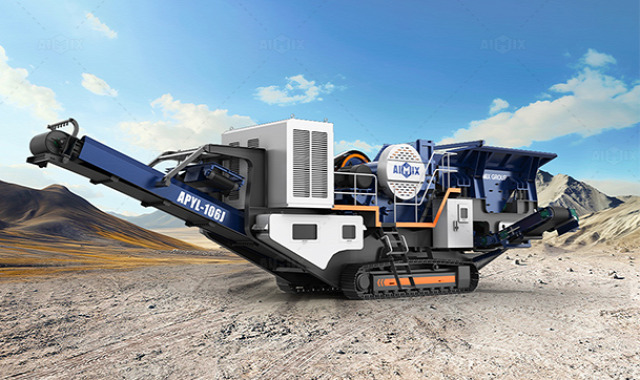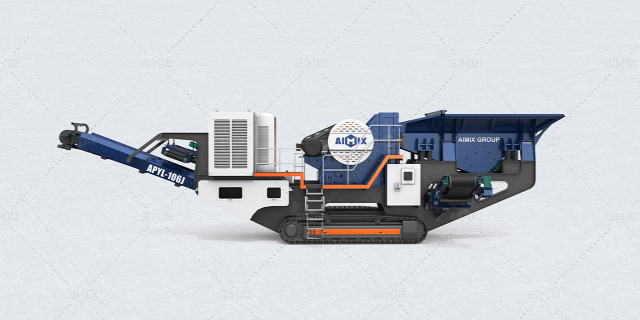In the pursuit of sustainability, the construction and mining industries are increasingly turning their focus to energy efficiency. The introduction of eco-friendly mobile crusher jaw crusher represents a significant step forward in this effort. These innovative machines are designed to minimize energy consumption while maximizing productivity. Their importance cannot be overstated, especially in an era where environmental regulations are tightening and companies are striving to reduce their carbon footprints. By adopting specific operational strategies, these plants can operate at peak efficiency while consuming less energy, thus contributing to both economic and environmental sustainability.

Optimizing Power Usage through Advanced Technology
Incorporation of Energy-Efficient Components
One of the primary strategies for reducing energy consumption in a mobile jaw crusher plant is the integration of energy-efficient components. These components, such as variable frequency drives (VFDs) and energy-efficient motors, are designed to use electricity more effectively. VFDs, in particular, allow the crusher to adjust its speed based on the load, thereby reducing unnecessary energy expenditure. This technology ensures that the machine operates only at the required power levels, avoiding the energy wastage that occurs with traditional fixed-speed motors. Furthermore, energy-efficient motors are constructed to minimize heat loss and maximize output, translating into lower energy requirements for the same level of performance. By incorporating these components, mobile jaw crushers can significantly reduce their energy consumption, making them more sustainable and cost-effective.
Automation and Smart Control Systems
In addition to energy-efficient components, automation plays a crucial role in optimizing energy usage. Modern mobile jaw crushers are equipped with advanced control systems that monitor and adjust the machine’s operation in real-time. These smart systems can automatically regulate power usage based on operational demands, ensuring that the crusher runs at optimal efficiency. For instance, during periods of low load, the system can reduce the crusher's operating speed, thereby conserving energy. Conversely, when higher output is needed, the system can increase power to meet demand without sacrificing efficiency. This level of automation not only reduces energy consumption but also enhances the overall productivity of the crusher, making it an invaluable tool for eco-friendly operations.

Minimizing Idle Time and Enhancing Efficiency
Streamlined Workflow and Process Integration
Another critical operational strategy for reducing energy consumption is minimizing idle time. In many traditional crushing operations, significant energy is wasted during periods when the machine is running but not actively processing material. To address this, eco-friendly mobile jaw crusher plants are designed to integrate seamlessly into the overall workflow, reducing idle time to a minimum. This is achieved through careful coordination between the crushing unit and other components of the operation, such as conveyors and screening equipment. By ensuring that material is continuously fed into the crusher, these plants can operate more efficiently, with less energy wasted on idle running. Additionally, streamlined processes mean that the crusher can complete its tasks more quickly, further reducing the total energy consumed per unit of output.
Adaptive Maintenance and Predictive Monitoring
Efficiency is also enhanced through adaptive maintenance strategies. Traditional maintenance schedules often result in unnecessary downtime and energy loss. However, modern mobile jaw crushers employ predictive monitoring technologies that allow for maintenance to be performed only when necessary. Sensors embedded within the machinery continuously track the condition of key components, alerting operators to potential issues before they lead to breakdowns. This proactive approach not only extends the life of the equipment but also ensures that the crusher operates at peak efficiency, with minimal energy waste. By focusing on predictive maintenance, mobile jaw crusher plants can maintain high levels of performance while reducing both operational costs and energy consumption.
Conclusion
The operational strategies employed by eco-friendly mobile jaw crusher plants are vital to reducing energy consumption in the construction and mining industries. Through the use of energy-efficient components, automation, and smart control systems, these plants optimize power usage and minimize waste. Additionally, strategies such as minimizing idle time and implementing adaptive maintenance further enhance efficiency, making these plants both economically and environmentally advantageous. As the demand for sustainable practices continues to grow, the role of energy-efficient mobile jaw crusher plants will become increasingly important in shaping the future of construction and resource management.


